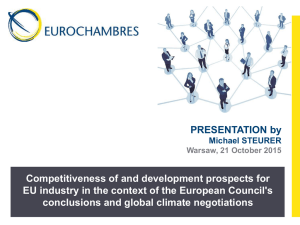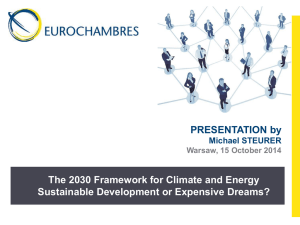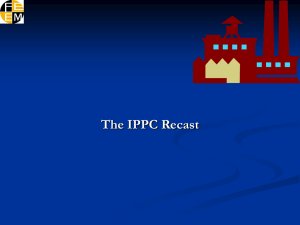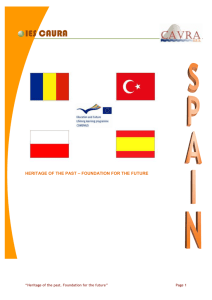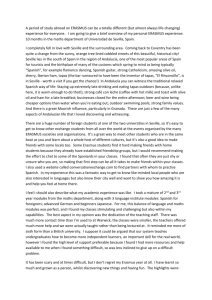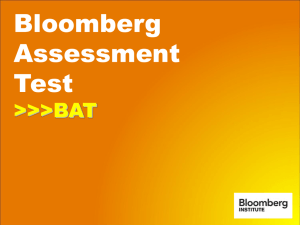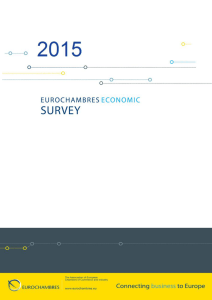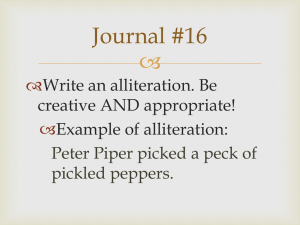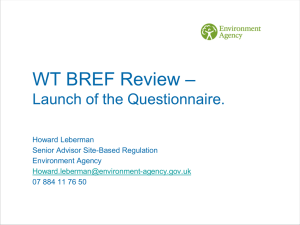(Industrial Emissions Directive) Executive Summary
advertisement
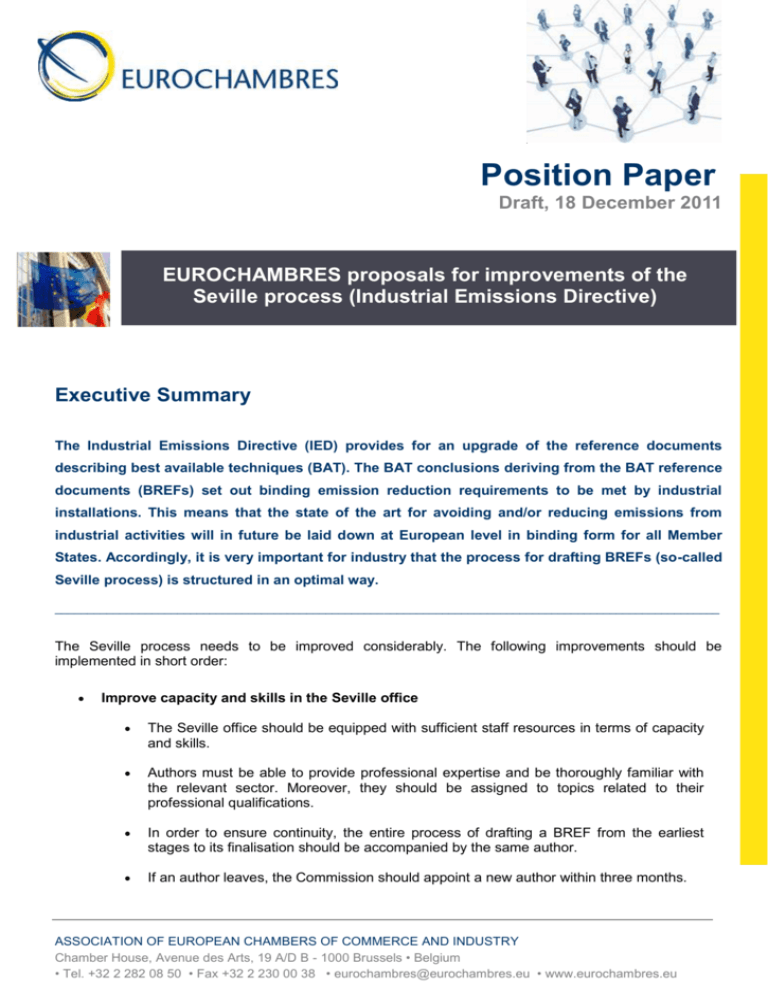
Position Paper Draft, 18 December 2011 EUROCHAMBRES proposals for improvements of the Seville process (Industrial Emissions Directive) Executive Summary The Industrial Emissions Directive (IED) provides for an upgrade of the reference documents describing best available techniques (BAT). The BAT conclusions deriving from the BAT reference documents (BREFs) set out binding emission reduction requirements to be met by industrial installations. This means that the state of the art for avoiding and/or reducing emissions from industrial activities will in future be laid down at European level in binding form for all Member States. Accordingly, it is very important for industry that the process for drafting BREFs (so-called Seville process) is structured in an optimal way. _______________________________________________________________________________________________________ The Seville process needs to be improved considerably. The following improvements should be implemented in short order: Improve capacity and skills in the Seville office The Seville office should be equipped with sufficient staff resources in terms of capacity and skills. Authors must be able to provide professional expertise and be thoroughly familiar with the relevant sector. Moreover, they should be assigned to topics related to their professional qualifications. In order to ensure continuity, the entire process of drafting a BREF from the earliest stages to its finalisation should be accompanied by the same author. If an author leaves, the Commission should appoint a new author within three months. ASSOCIATION OF EUROPEAN CHAMBERS OF COMMERCE AND INDUSTRY Chamber House, Avenue des Arts, 19 A/D B - 1000 Brussels • Belgium • Tel. +32 2 282 08 50 • Fax +32 2 230 00 38 • eurochambres@eurochambres.eu • www.eurochambres.eu Proposals for improvements of the Seville process Reduce data collection to the essential In general, BREFs are too long. Thus, the aim should be that only those emission data are collected which are relevant for emission limit values. Changes to the structure of BREFs should only be made in coordination with all stakeholders (industry, Seville office, Commission). Interfaces between horizontal and vertical BREFs must be clearly defined. Before collecting the data, there should be clear indications of how they are to be used (type of averages (annual or daily averages, conformity with IED), with/without measurement uncertainties, measurement method and definition of “normal operation”). Also, there should also be an obligation for data to be specified. This can prevent data from being difficult to interpret (e.g. because it is unclear what measuring technique has been used). It has proved to be problematic to merge data from different sources and of varying quality (e.g. results of spot measurements and continuous measurements, data from new installations and old installations, different averaging periods for minimum and maximum values). Furthermore, the essential problem arises if the data basis (annual average value) is described as daily average values in the BAT-AEL and these are to be implemented as limit values in national law. In the case of non-continuous processes, annual and maximum daily average values can vary by a factor of ten. To improve data quality, reference installations should be selected using uniform yardsticks and harmonised standards. Improve data processing It must be obligatory to take account of all submitted data sets. Only insufficient data sets should be allowed to be rejected, based on sufficient justification. The transparency of data processing needs to be improved. The submission of aggregate data is of little help to companies. It would be helpful if data and the draft versions underlying the work were more accessible in order to provide stakeholders with timely input. It should be possible to identify those comments which have already been incorporated. Data should be evaluated in liaison with the TWG’s subgroups which have the necessary expertise. With regard to drafting BATs, uniform requirements must be applied. If the rapporteur changes, existing drafts should not be reworked to reflect individual preferences. In the case of substantial revisions to BREFs (e.g. LCP), basically two drafts should be provided. Make an impact assessment obligatory An impact assessment should be obligatory. It is important to assess the implications of a BREF not only for individual Member States but also for industry in terms of the timetable and in relation to the expected costs. EUROCHAMBRES Position Paper 19 December 2013 2 Proposals for improvements of the Seville process Improve time-keeping All presented timetables should be met. It is necessary to set deadlines for processing BREFs. The deadlines should be more realistic and oriented towards the available number of working days. It is important not to set deadlines which take account only of holiday periods identified by the Seville office. More time should be granted for the appropriate design of questionnaires, data collection and comments. Apply transparent procedures for developing BAT conclusions In this regard, affected industrial sectors should submit a position (with an estimate of compliance costs). Stakeholders should be invited to submit their position once the first BAT draft has been completed. With regard to developing BAT conclusions a transparent procedure should be ensured. Involve all EU Member States All Member States should be involved in drafting BREFs. Currently, numerous Member States are not represented. ____________________________________________________________________________________________ EUROCHAMBRES – The Association of European Chambers of Commerce and Industry represents over 20 million enterprises in Europe – 93% of which are SMEs – through members in 44 countries and a European network of 2000 regional and local Chambers. Further information: Mr. Michael Steurer, Tel. +32 2 282 08 77, steurer@eurochambres.eu Press contact: Ms. Susete Sampaio, Tel. +32 2 282 08 66, cominotti@eurochambres.eu All our position papers can be downloaded from www.eurochambres.eu/content/default.asp?PageID=145 EUROCHAMBRES Position Paper 19 December 2013 3
